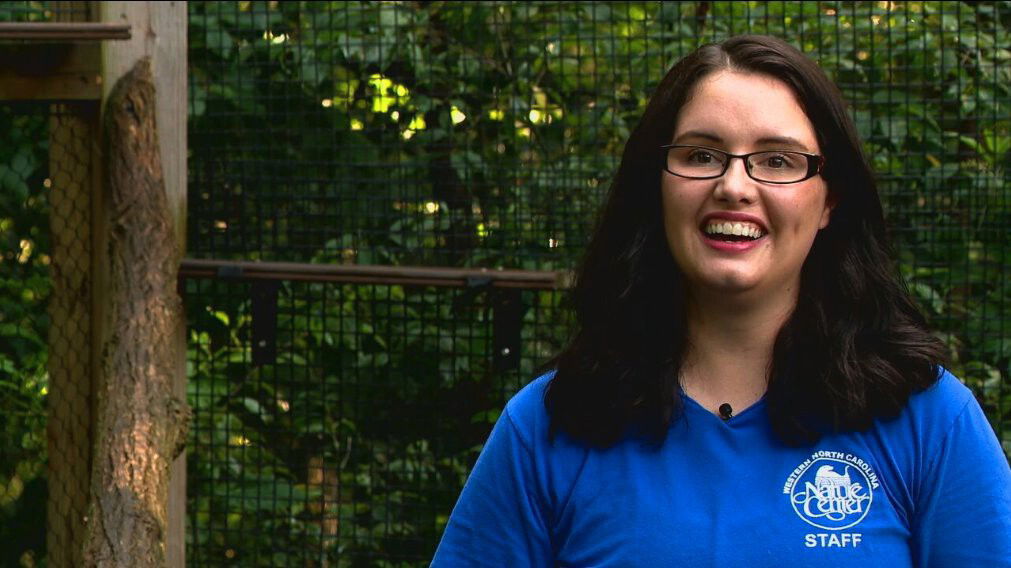Animal care naturalist opens up about work she does at the WNC Nature Center

Lori Hyatt
By Sarah White
Click here for updates on this story
ASHEVILLE, North Carolina (WLOS) — The Western North Carolina Nature Center is home to more than 60 species of wildlife, and helping to care for all of the animals it houses takes more than meets the eye.
Lori Hyatt, an animal care naturalist who has been working for the center for four years, said a job at a veterinary office eventually led her to working with the animals at the Nature Center.
“I actually worked at a veterinary hospital prior to this. So, it took me a little while, but I realized I wanted to go back to school to work with different types of animals, not that I don’t love dogs and cats,” Hyatt said.
Hyatt went back to school and took the first position the Nature Center had open, which was in the maintenance department.
“I told them that I wanted to work in animal care and told them not to be surprised if I made the jump” she said.
Successfully making the jump to animal care naturalist, Hyatt now cares for many animals at the Nature Center.
“My animals that I typically care for are the red pandas, the foxes, the grays and the reds, and the birds of prey,” she said.
Hyatt’s day usually starts by checking every animal to make sure they are feeding and acting normally. But there are other parts of the job the public does not see as much.
“I think, a lot of times, people do think we play with them all day, which, if we could, we would. But, definitely, a large part of any zookeeper’s job is just husbandry care and cleaning and making sure, you know, watching for any kind of behavioral changes and making sure that their health care stays good” Hyatt said.
Many of the animals at the WNC Nature Center have been injured or have been imprinted, which, in some cases, requires Hyatt to do training exercises with them for routine medical care.
“They have a touch behavior, where we let them know that we are going to touch them, and that helps them know that we are getting ready to do something” she said. “We do that for injections with them, and it lets them voluntarily work with us, which makes medical care a lot easier for these guys.”
But Hyatt’s job doesn’t just stop with the care of the animals, it also involves providing information to the visitors she sees every day at the Nature Center.
“One of my favorite parts is getting to help educate and, hopefully, inspire the community and future generations, kids that come and ask us questions, and, hopefully, get to have a level of appreciation. With that, they grow to understand our native biodiversity and ideally want to protect them then and give back” Hyatt said.
And giving back to these animals makes a wide impact, Hyatt said.
“Unfortunately, one of their main threats is logging. So, deforestation has really hurt their numbers. So, that is one reason they’re here. So, that way we can help genetics and increase their gene pool and, hopefully, help those numbers to increase again in the wild.”
Please note: This content carries a strict local market embargo. If you share the same market as the contributor of this article, you may not use it on any platform.